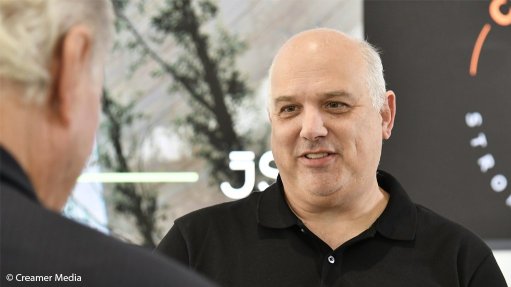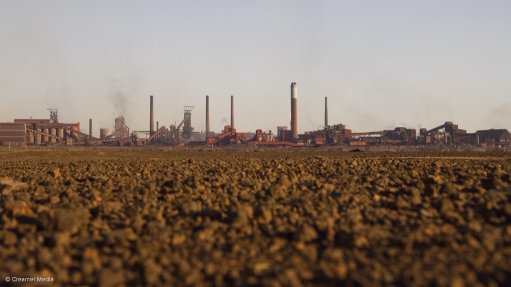Tribunal dismisses cement industry cartel case against NPC
A decade after the Competition Commission launched an investigation into a cement cartel, the matter has been finalised, with the Competition Tribunal this week having dismissed a case of indirect price fixing and market division against Natal Portland Cement Cimpor (NPC).
The cement industry cartel case stemmed from a commission investigation launched in 2008, which probed alleged anticompetitive conduct in the cement industry in South Africa. This was against a backdrop of meetings held in exclusive venues as far afield as Paris and Portugal, as well as agreements stemming from the various meetings held both locally and abroad.
The allegations that NPC, Pretoria Portland Cement Company (PPC), Lafarge Industries South Africa (Lafarge) and AfriSam Consortium (AfriSam) had engaged in cartel conduct between 1995 and 2009 culminated in the commission raiding the companies’ offices a year later in 2009.
PPC subsequently admitted to being part of the cartel and was granted conditional leniency in terms of the commission’s corporate leniency policy, in exchange for it helping the commission to prosecute the remaining cartel members.
Evidence had emerged during the hearing before the tribunal that global consulting firm McKinsey and Company had advised AfriSam in 1998 to cartelise by cooperating with competitors through a strategy known as co-opetition. This formed part of an admission in a witness statement by a former AfriSam MD, who has since died. McKinsey had denied his claims.
The tribunal had also heard evidence that Lafarge executives had summonsed the newly appointed MD of its South African subsidiary to a Paris meeting in 1998 – a time when the local subsidiary’s market share had dropped – where he was instructed to explain “global rules” of the cement industry to other cement producers in South Africa.
Both AfriSam and Lafarge had admitted to contravening the Competition Act. AfriSam had agreed to settle with the commission in 2011 and paid an administrative penalty of R124.88-million.
Lafarge also settled and paid a fine amounting to R148.72-million in 2012.
Both AfriSam and Lafarge had also agreed to cooperate with the commission in its pursuit of the case against NPC. This meant that NPC was the only company left facing allegations.
NPC, however, denied that it had contravened the Competition Act or that it was liable to pay an administrative penalty. The commission referred the case against NPC to the tribunal for prosecution in 2015.
The company denied the commission’s allegations that it had been party to anticompetitive arrangements and meetings – including a meeting in Lisbon, Portugal, in 2002 between Lafarge and NPC executives which allegedly culminated in an agreement to give NPC an advantage in KwaZulu-Natal.
TRIBUNAL ORDER AND REASONS
The crux of the commission’s case was that the cement companies, following a price war that was devastating for the producers, held a series of meetings which culminated in a 1998 meeting held in Port Shepstone. The commission argued that a consensus had been reached at that meeting which constituted a cartel that included NPC.
In its order and reasons the tribunal says: “While it is true that a reasonable suspicion may exist that Strauss [NPC] played a greater role at the Port Shepstone meeting than may appear at first blush and that he may have involved NPC in cartel arrangements, the facts don’t adequately support such a suspicion… Mr Strauss’ actions post the takeover of NPC by Cimpor are hardly indicative of a person either involved in cartel arrangements or trying to maintain those arrangements.”
The Tribunal continues: “It is common cause that PPC, Lafarge and AfriSam had reached consensus on maintaining market stability according to the international cement rules and that the price war engaged in by the three had hurt them financially. The Port Shepstone agreement resolved those issues amongst the three of them. NPC was never involved in the price war. There was no need for it to get so involved. It was operating at maximum capacity which it could not increase and operated mainly, almost exclusively, in southern KwaZulu-Natal where the others had only a limited presence and where selling cement at competitive prices was challenging because of the transport costs in doing so.
"It is reasonable to accept that NPC had no interest in the discussions which were held by the others and explains why Mr Strauss was in and out of the meeting and felt no need to report on the meeting to NPC staff members. Under those circumstances it could not be said that NPC was a party to that agreement.
“NPC took steps to expand its capacity after the takeover by Cimpor. Prima facie that was inconsistent with a capacity-based market sharing agreement. The expansion did take some time, but the steps taken were outlined by Mr Strauss and his evidence was never contradicted by other witnesses.”
In dismissing the commission’s complaint against NPC-Cimpor, the tribunal concludes: “… The discussions between Lafarge, AfriSam and PPC centered around the allocation of their market shares, transport costs and profits and not NPC’s.”
Article Enquiry
Email Article
Save Article
Feedback
To advertise email advertising@creamermedia.co.za or click here
Press Office
Announcements
What's On
Subscribe to improve your user experience...
Option 1 (equivalent of R125 a month):
Receive a weekly copy of Creamer Media's Engineering News & Mining Weekly magazine
(print copy for those in South Africa and e-magazine for those outside of South Africa)
Receive daily email newsletters
Access to full search results
Access archive of magazine back copies
Access to Projects in Progress
Access to ONE Research Report of your choice in PDF format
Option 2 (equivalent of R375 a month):
All benefits from Option 1
PLUS
Access to Creamer Media's Research Channel Africa for ALL Research Reports, in PDF format, on various industrial and mining sectors
including Electricity; Water; Energy Transition; Hydrogen; Roads, Rail and Ports; Coal; Gold; Platinum; Battery Metals; etc.
Already a subscriber?
Forgotten your password?
Receive weekly copy of Creamer Media's Engineering News & Mining Weekly magazine (print copy for those in South Africa and e-magazine for those outside of South Africa)
➕
Recieve daily email newsletters
➕
Access to full search results
➕
Access archive of magazine back copies
➕
Access to Projects in Progress
➕
Access to ONE Research Report of your choice in PDF format
RESEARCH CHANNEL AFRICA
R4500 (equivalent of R375 a month)
SUBSCRIBEAll benefits from Option 1
➕
Access to Creamer Media's Research Channel Africa for ALL Research Reports on various industrial and mining sectors, in PDF format, including on:
Electricity
➕
Water
➕
Energy Transition
➕
Hydrogen
➕
Roads, Rail and Ports
➕
Coal
➕
Gold
➕
Platinum
➕
Battery Metals
➕
etc.
Receive all benefits from Option 1 or Option 2 delivered to numerous people at your company
➕
Multiple User names and Passwords for simultaneous log-ins
➕
Intranet integration access to all in your organisation


















